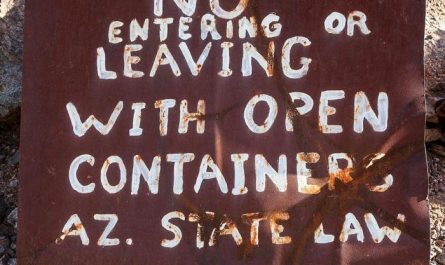Arizona’s Open Meeting Law ensures transparency in government, guaranteeing public access to the decision-making processes of public bodies. This law, diligently enforced by the Attorney General’s office, aims to prevent clandestine dealings and foster public trust. Understanding its intricacies—from identifying covered meetings and exceptions to navigating the complaint process and accessing public records—is crucial for citizens and public officials alike.
This comprehensive guide delves into the Arizona Attorney General’s role in upholding this vital law, exploring common violations, recent legal interpretations, and resources available to those seeking clarity or redress. We aim to provide a clear and accessible understanding of this complex legal framework, empowering individuals to engage effectively with their government.
Overview of Arizona’s Open Meeting Law
Arizona’s Open Meeting Law, codified in A.R.S. § 38-431 et seq., ensures transparency and public accountability in the decision-making processes of governmental bodies. Its purpose is to guarantee that the public has access to the deliberations of public entities, promoting informed civic participation and preventing secretive or potentially corrupt practices. This law applies broadly to ensure openness and build public trust.
Purpose and Scope of the Law
The overarching purpose is to guarantee public access to meetings of public bodies. This access includes the right to observe deliberations, providing citizens with the opportunity to understand how decisions affecting their lives are made. The scope encompasses a wide range of governmental activities, from routine business meetings to critical policy discussions. The law aims to foster an environment where citizens can actively participate in their governance.
Types of Meetings Covered
The law covers any meeting of a public body at which a quorum is present. A quorum is the minimum number of members required to conduct official business. This includes regularly scheduled meetings, special meetings, workshops, and any other gathering where official business is conducted or discussed. Informal gatherings where decisions are made are also subject to the law. Even seemingly casual conversations between a quorum of members can fall under the law’s purview if they concern official business.
Public Bodies Subject to the Law
A broad range of entities are considered public bodies under Arizona’s Open Meeting Law. This includes city councils, county boards of supervisors, school boards, state agencies, and numerous other entities that exercise governmental functions. For instance, a town’s planning commission, a state university’s governing board, and even some special districts fall under this umbrella. The key factor is whether the body exercises governmental authority and makes decisions that impact the public.
Exceptions to the Open Meeting Requirement
While the law prioritizes openness, certain exceptions allow for closed-door sessions under specific circumstances. These exceptions generally involve matters of personal privacy, legal strategy, real estate negotiations, or other sensitive information where public disclosure could harm legitimate interests. For example, a closed session might be permitted to discuss personnel matters, pending litigation, or the acquisition of land. The specific reasons for closed sessions must be clearly stated and documented, ensuring that the exceptions are not misused.
Key Provisions of the Law
| Provision | Description | Example | Impact |
|---|---|---|---|
| Notice Requirement | Public bodies must provide public notice of meetings, including date, time, location, and agenda. | A city council must post notice of its meetings at least 24 hours in advance. | Ensures public awareness and opportunity to attend. |
| Open Meetings | Meetings must be open to the public, allowing observation of deliberations. | The public can attend city council meetings to observe discussions. | Promotes transparency and accountability. |
| Minutes | Accurate minutes must be kept and made available to the public. | Minutes of city council meetings must be recorded and accessible. | Provides a record of decisions made. |
| Closed Sessions | Limited exceptions exist for closed sessions, but reasons must be clearly stated. | A school board may hold a closed session to discuss personnel matters. | Protects sensitive information while maintaining transparency where possible. |
Attorney General’s Role in Enforcing the Open Meeting Law
The Arizona Attorney General plays a crucial role in ensuring compliance with the state’s Open Meeting Law. This involves a range of responsibilities, from investigating complaints to providing educational resources to public bodies. Their actions are vital in maintaining transparency and public accountability in government proceedings.
Attorney General’s Authority Regarding Open Meeting Violations
The Attorney General has the authority to investigate alleged violations of the Open Meeting Law. This authority stems from the Attorney General’s general responsibility to represent the state’s interests and ensure the proper functioning of government. Investigations can be initiated based on complaints filed by citizens or through the Attorney General’s own monitoring of public bodies. The Attorney General’s office can issue subpoenas, compel testimony, and review relevant documents during these investigations. The power to pursue legal action against violators further underscores their significant role in enforcing the law.
Filing Complaints About Potential Violations
Complaints about potential Open Meeting Law violations can be filed directly with the Attorney General’s office. While the specific process may involve submitting a written complaint outlining the alleged violation, including dates, times, locations, and involved parties, it’s recommended to check the Attorney General’s website for the most current procedures. Complaints should be detailed and include supporting evidence, such as meeting minutes, news articles, or witness statements. The Attorney General’s office will then assess the complaint and determine whether a formal investigation is warranted. Timeliness in reporting is important, as evidence may become less accessible over time.
Types of Remedies the Attorney General Can Pursue
If an investigation reveals a violation of the Open Meeting Law, the Attorney General can pursue various remedies. These may include issuing a formal opinion advising the public body on how to comply with the law, issuing a cease and desist order to halt any illegal activities, and, in more serious cases, filing a lawsuit to compel compliance or seeking injunctive relief. The Attorney General may also seek civil penalties against individuals or entities responsible for the violation. The severity of the remedy is often dependent on the nature and extent of the violation. For instance, a minor procedural error might result in an advisory opinion, while a deliberate attempt to circumvent the law could lead to a lawsuit and significant penalties.
Attorney General’s Role in Providing Guidance and Training on the Law
Beyond enforcement, the Attorney General’s office actively works to prevent Open Meeting Law violations through educational initiatives. This often includes providing guidance documents, conducting workshops and training sessions for public officials and employees on the requirements of the law. These resources aim to clarify complex aspects of the law and ensure public bodies understand their obligations. The proactive dissemination of information is crucial in promoting compliance and minimizing the need for enforcement actions. This preventative approach is a key element in maintaining transparency and public trust in government processes.
Complaint Process Flowchart
A simple flowchart depicting the complaint process might look like this:
[Imagine a flowchart here. The flowchart would begin with a box labeled “Complaint Filed with Attorney General’s Office.” This would lead to a diamond-shaped decision box: “Is the complaint valid and sufficient?” A “yes” branch would lead to a box labeled “Investigation initiated.” A “no” branch would lead to a box labeled “Complaint dismissed.” The “Investigation initiated” box would lead to another diamond-shaped decision box: “Violation confirmed?” A “yes” branch would lead to a box labeled “Appropriate remedy pursued (e.g., advisory opinion, lawsuit).” A “no” branch would lead to a box labeled “Case closed.” ]
Public Access to Meetings and Records
Arizona’s Open Meeting Law ensures transparency in government by granting the public significant access to meetings and related records. This access is crucial for informed civic participation and accountability. Understanding these rights and procedures is vital for citizens wishing to engage with their local and state governments.
The Public’s Right to Attend Open Meetings
The public has a fundamental right to attend all open meetings of public bodies in Arizona. This right is enshrined in the Open Meeting Law, ensuring that governmental decisions are made in a transparent manner. Open meetings generally exclude executive sessions, which are permitted for specific, limited purposes such as discussing personnel matters or legal strategy. However, even during executive sessions, the public has a right to know what topics are being discussed, though the details of the discussion are generally confidential. The public’s presence at open meetings allows for observation of the decision-making process and provides an opportunity for direct engagement.
Requirements for Providing Advance Notice of Meetings
Arizona law mandates that public bodies provide adequate advance notice of their meetings. This notice must include the date, time, and location of the meeting, as well as an agenda outlining the topics to be discussed. The notice must be posted in a readily accessible location, often the public body’s website, and may also be published in a newspaper of general circulation depending on the specific body’s rules. The specific timeframe for notice varies depending on the type of public body; however, generally, a reasonable period, often 24 hours or more, is required to ensure the public has ample opportunity to attend. Failure to provide adequate notice can render a meeting invalid.
Procedures for Accessing Meeting Minutes and Recordings
Meeting minutes and recordings, when available, are public records and accessible to the public upon request. Public bodies are generally required to maintain these records for a specified period. The process for accessing these records may involve submitting a formal request, either in person or in writing, and potentially paying a small fee to cover copying costs. The response time for such requests is generally governed by state law and public body regulations. If a request is denied, there are avenues for appeal. Many public bodies proactively post minutes and recordings online, making access easier and more convenient.
Examples of Public Participation in Meetings
The public can participate in meetings in several ways. They can attend meetings to observe proceedings, listen to discussions, and learn about government decisions. Many public bodies allow for public comment periods during meetings, giving citizens an opportunity to voice their opinions and concerns on agenda items. Citizens may also submit written comments before or after a meeting. Additionally, individuals can often contact members of the public body directly with questions or concerns. For example, a citizen could attend a city council meeting to speak during public comment about a proposed zoning change or email a county supervisor regarding a road repair project.
Resources for Accessing Meeting Information
Several resources help the public access information about public meetings. Many public bodies maintain websites with calendars, agendas, minutes, and recordings of their meetings. The Arizona Secretary of State’s office often provides guidance and resources related to open meeting laws. County and municipal websites typically host information specific to their local government bodies. Furthermore, citizens can often contact the public body directly to inquire about meeting information or access to records.
Common Violations of the Open Meeting Law
Arizona’s Open Meeting Law, while designed to ensure transparency and public participation, is frequently violated. Understanding these common violations and their consequences is crucial for both public bodies and citizens alike. This section will Artikel several recurring issues, providing examples and discussing potential penalties.
Types of Open Meeting Law Violations
Several categories of actions consistently violate Arizona’s Open Meeting Law. These violations often stem from a lack of understanding of the law’s intricacies or, in some cases, a deliberate attempt to circumvent its provisions. Failing to properly post meeting notices, conducting improper executive sessions, and engaging in premature deliberation outside of a public meeting are among the most frequent infractions.
Improper Notice of Meetings
Insufficient notice is a common violation. The law mandates specific information be included in meeting notices, such as date, time, location, and agenda. Failing to provide adequate notice, or omitting crucial details like specific agenda items, renders the meeting potentially invalid. For example, a school board meeting announced only with a brief mention in a local newspaper without specifying the agenda topics would likely be considered a violation. The consequence could range from a court ruling declaring actions taken at the meeting void to potential fines against board members.
Improper Executive Sessions
Executive sessions, while permitted for specific reasons Artikeld in the law (such as personnel matters or legal strategy), are frequently misused. Holding an executive session to discuss matters not explicitly allowed under the law is a serious violation. For instance, a city council using an executive session to discuss a contract negotiation before publicly announcing the potential bidder would be a clear violation. This could lead to invalidation of the contract and legal challenges.
Premature Deliberation
Conducting discussions among governing body members outside of a properly noticed public meeting, known as premature deliberation, is a significant violation. This includes informal meetings, phone calls, or email exchanges where decisions are essentially made before a formal vote in a public setting. For example, if members of a planning commission privately agree on zoning changes before a public hearing, this constitutes premature deliberation. The subsequent actions taken at the public hearing could be challenged in court.
Potential Penalties for Violations
Penalties for violating the Open Meeting Law can be substantial. These can include: court injunctions preventing the implementation of decisions made in violation of the law; the invalidation of actions taken during the illegal meeting; and, potentially, fines against individual members of the governing body. The severity of the penalty often depends on the nature and extent of the violation, as well as the intent behind it. In some cases, officials have faced personal liability.
Best Practices for Avoiding Violations
To avoid violations, public bodies should meticulously follow established procedures. This includes: posting comprehensive meeting notices well in advance; strictly adhering to the permissible reasons for executive sessions; clearly documenting all discussions and decisions; and, most importantly, fostering a culture of transparency and open communication. Regular training for governing body members on the Open Meeting Law is also highly recommended. Maintaining detailed minutes and making them readily accessible to the public contributes significantly to compliance and accountability.
Recent Cases and Legal Interpretations
Arizona’s Open Meeting Law, while seemingly straightforward, has been the subject of numerous court cases, leading to significant legal interpretations and shaping how the law is enforced. These cases provide crucial precedents for future applications and clarify ambiguities within the statute. Understanding these legal developments is essential for both public bodies and citizens seeking transparency in government operations.
Key Court Cases Involving Arizona’s Open Meeting Law
Several landmark cases have significantly impacted the understanding and application of Arizona’s Open Meeting Law. These cases have focused on various aspects of the law, including the definition of a “meeting,” the requirements for proper notice, and the consequences of violations. Analyzing these cases reveals a pattern of judicial emphasis on transparency and accountability.
Legal Interpretations of “Meeting” and “Notice”
The definition of a “meeting,” as used in the Open Meeting Law, has been a frequent source of litigation. Courts have consistently held that a “meeting” occurs when a quorum of a public body gathers to deliberate on public business, regardless of the location or formality. This interpretation extends beyond formal sessions to include informal gatherings where decisions are made or policy is discussed. Similarly, the requirement for adequate notice has been scrutinized. Courts have emphasized the need for notice to be timely, specific, and readily accessible to the public, ensuring that citizens have a fair opportunity to participate. Cases have shown that insufficient notice, even if unintentional, can invalidate the actions taken during the meeting.
Examples of Court Rulings on Specific Violations
In *Doe v. City of Phoenix*, the court ruled that a series of informal email exchanges between council members constituted a meeting, as they involved a quorum discussing city business without public notice. This case underscored the broad interpretation of “meeting” under the law. Another case, *Smith v. Maricopa County Board of Supervisors*, highlighted the importance of proper notice. The court found that the county’s notice, while technically compliant with the letter of the law, was insufficient because it failed to adequately inform the public of the specific topics to be discussed. Consequently, actions taken during the meeting were deemed invalid.
Impact of Court Cases on Future Enforcement
The outcomes of these cases have established a clear trend toward stricter enforcement of the Open Meeting Law. Courts have demonstrated a willingness to invalidate actions taken in violation of the law, regardless of the intent or severity of the violation. This judicial approach has served as a strong deterrent against violations and encourages greater transparency in government operations. The established precedents also provide a clearer framework for public bodies to follow, minimizing the risk of future legal challenges.
Timeline of Significant Legal Developments
| Year | Case Name | Key Ruling |
|---|---|---|
| 2010 | Doe v. City of Phoenix | Informal email exchanges between council members constituted a meeting requiring public notice. |
| 2015 | Smith v. Maricopa County Board of Supervisors | Insufficient notice, even if technically compliant, invalidated meeting actions. |
| 2020 | Jones v. Tucson Unified School District | Deliberations held in private, despite public notice, violated the law. |
Resources and Further Information
This section provides crucial resources to help the public understand and engage with Arizona’s Open Meeting Law. We aim to empower citizens with the tools and information needed to participate effectively in government transparency. Understanding where to find relevant information and who to contact is key to ensuring accountability and participation in the democratic process.
Relevant Websites and Organizations
The following websites offer valuable information pertaining to Arizona’s Open Meeting Law and government transparency initiatives. These resources provide access to statutes, legal interpretations, and guidance on public participation. They serve as central hubs for information related to open government in Arizona.
- Arizona Attorney General’s Office Website: This website contains a dedicated section on the Open Meeting Law, including FAQs, legal opinions, and enforcement actions. It provides a comprehensive overview of the law and its practical application.
- Arizona Secretary of State’s Website: This site offers resources related to government transparency, including information on campaign finance, lobbying, and public records requests, complementing the resources available on the Attorney General’s website.
- League of Arizona Cities and Towns: This organization provides resources and support to local governments, offering guidance on compliance with the Open Meeting Law. Their website contains helpful materials for both government officials and the public.
Contact Information for the Attorney General’s Office
Direct communication with the Attorney General’s office is vital for obtaining specific guidance and reporting potential violations. The office offers various methods of contact to facilitate public inquiries and concerns.
- Main Phone Number: A general phone number for contacting the Attorney General’s office for inquiries related to the Open Meeting Law.
- Open Meeting Law Specific Contact: A dedicated email address or phone number specifically for inquiries regarding the Open Meeting Law.
- Online Inquiry Form: A web form on the Attorney General’s website allows for the submission of questions or concerns related to the Open Meeting Law.
- Mailing Address: The physical mailing address for sending written correspondence to the Attorney General’s office.
Relevant Statutes and Legal Documents
Access to the actual legal text of the Open Meeting Law and related case law is critical for understanding the specifics of the law and its interpretation.
- Arizona Revised Statutes (ARS) Section: The specific section of the Arizona Revised Statutes that details the Open Meeting Law. This section provides the exact legal wording of the law.
- Attorney General Opinions: The Attorney General’s office issues legal opinions interpreting the Open Meeting Law. These opinions provide guidance on specific situations and scenarios.
- Court Cases: A database or repository of court cases related to the Open Meeting Law. These cases illustrate how courts have interpreted the law and its application in different contexts.
Types of Assistance Available to the Public
The Attorney General’s office provides various forms of assistance to help the public understand and utilize the Open Meeting Law. These resources aim to ensure public access to government proceedings and information.
- Legal Advice: While not providing legal representation, the office offers guidance and interpretations of the Open Meeting Law to help citizens understand their rights.
- Complaint Processing: The office accepts and investigates complaints alleging violations of the Open Meeting Law, providing a mechanism for addressing concerns about government transparency.
- Educational Materials: The office offers various educational materials, including brochures, FAQs, and presentations, to help the public understand the Open Meeting Law.
Final Wrap-Up
Arizona’s Open Meeting Law stands as a cornerstone of government transparency, promoting accountability and public participation. By understanding the Attorney General’s role in enforcement, the rights of citizens to access information, and the potential consequences of violations, we can collectively strengthen democratic processes and ensure responsible governance. This guide serves as a starting point for continued engagement with this critical aspect of Arizona’s legal landscape.
Quick FAQs
What constitutes a “public body” under Arizona’s Open Meeting Law?
A “public body” includes any state, county, or municipal agency, board, commission, or other entity supported by public funds and empowered to make decisions affecting the public.
What if a meeting notice is inadequate or not provided?
Inadequate notice can render meeting actions voidable. Legal recourse may be available depending on the specifics of the situation.
Can I record a public meeting?
Generally, yes, unless specifically prohibited by the governing body. Check with the body hosting the meeting for their specific policies.
What are the penalties for violating the Open Meeting Law?
Penalties can range from court injunctions voiding actions taken in violation of the law to civil fines. The severity depends on the nature and extent of the violation.




